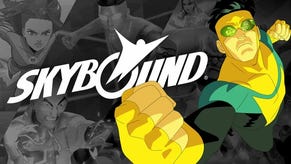Creator of original Xbox slams Microsoft's current Xbox strategy
"Stupid, stupid Xbox!!"
The engineer who founded and named the original Xbox and sold the vision to Microsoft has slammed the company's last five Xbox 360 years as "painful to watch".
Far from seeing a bountiful future for the next Xbox, Nat Brown - the engineer - wrote on his blog (via GamesIndustry International) that Microsoft is "living in a naive dream world". "Apple," he said, "if it chooses to do so, will simply kill PlayStation, Wii U and Xbox by introducing an open 30-per-cent-cut app/game ecosystem for Apple TV."
Let's start at the beginning.

Microsoft's Xbox division has been "coasting" in the last five years on perceived success, when really that's just been "your competitor's stumbling failure", jabbed Brown. Preaching the entertainment-hub message is fine - the original Xbox was intended as Microsoft's "Trojan horse" way into the living room - but not while "their home town is on fire".
"Xbox's primary critical problem is the lack of a functional and growing platform ecosystem for small developers to sell digitally-network-distributed (non-disc) content through to the installed base of Xbox customers, period," Brown stated.
Developing small indie games for Xbox 360 is expensive and a faff and Brown pointed out various reasons why. It's even worse when stood next to the equivalent iOS and Android opportunities.
"Microsoft, you are idiotic to have ceded not just indie game developers but also a generation of loyal kids and teens to making games for other people's mobile devices," Brown chastised.
The second problem is that the Xbox 360 dashboard operating system is "creaky, slow and full of s***". It takes too long to simply get games up and running, not to mention the recurring storage selection and download-an-update interruptions.
"These are the two fronts Microsoft is going to lose on in the living room battle with Android and iOS," he declared.
"A single custom studio of 150 employees also can not generate enough content to defensibly satisfy 76 million+ customers. Only with quality primary software content from thousands of independent developers can you defend the brand and the product. Only by making the user experience simple, quick, and seamless can you defend the brand and the product."
The problem for Microsoft et al is that, well, Apple, basically. iOS device sales are through the orchard roof and, lurking there in the background, is the unfulfilled menace of Apple TV (and Apple's spare £86.6 billion).
"Xbox just needs somebody with a brain and focus to get the product in order..."
Nat Brown
"Apple, if it chooses to do so, will simply kill PlayStation, Wii U and Xbox by introducing an open 30-per-cent-cut app/game ecosystem for Apple TV," wrote Brown.
"I already make a lot of money on iOS - I will be the first to write apps for Apple TV when I can, and I know I'll make money. I would for Xbox if I could and I knew I would make money.
"Maybe a 'console-capable' Apple TV isn't $99, maybe it's $199, and add another $79 for a controller. The current numbers already say a lot, even with Apple TV not already an open console: 5.3 million sold units in 2012, 90 per cent year-over-year growth, vs. Xbox 360: about 9M units in 2012, 60 per cent YOY decline."
The future isn't rosy, not when you factor in "idiotic moves" like trying to eradicate second-hand sales, Brown tutted.
"And it makes me sad," he concluded. "Because it just doesn't have to fail, even though it has been punted around poorly for five years.
"Xbox just needs somebody with a brain and focus to get the product in order tactically before romping forward to continue the long-term strategic promise of an Xbox in every living room, connected to every screen."


.png?width=291&height=164&fit=crop&quality=80&format=jpg&auto=webp)



.png?width=291&height=164&fit=crop&quality=80&format=jpg&auto=webp)


